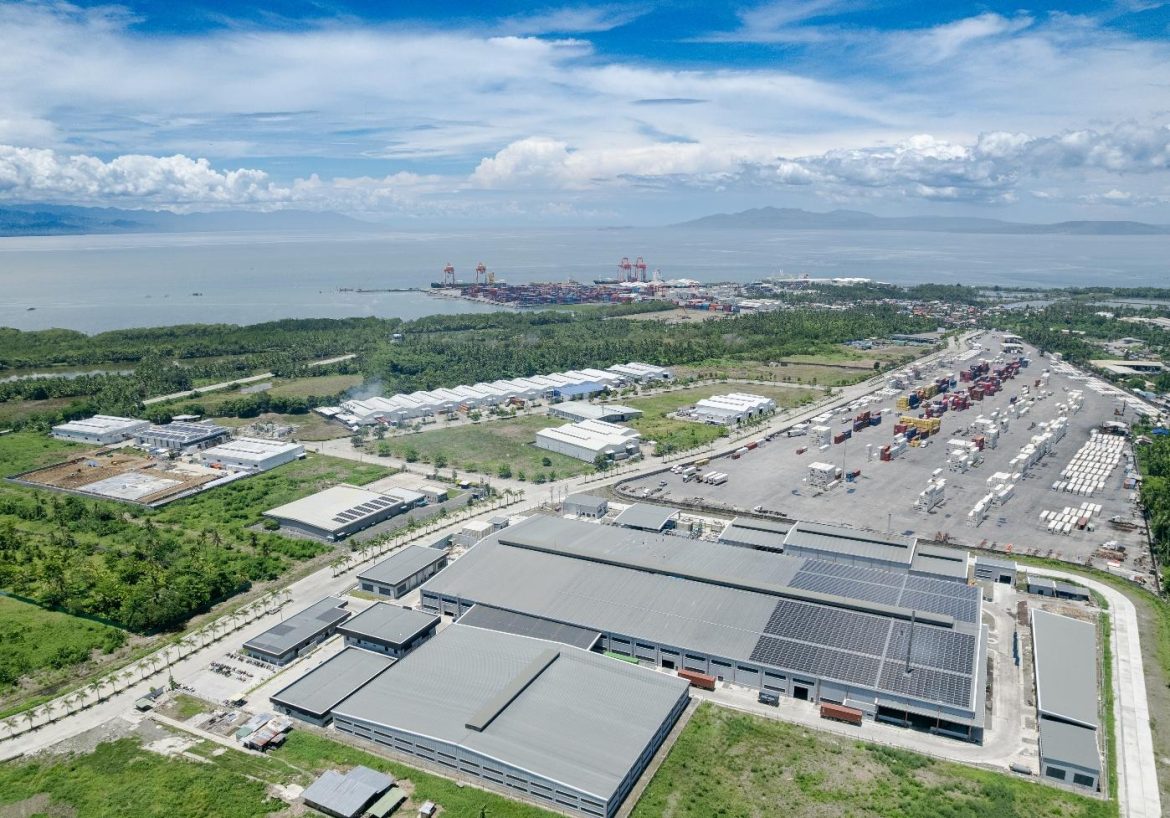With its long-standing reputation as an agricultural powerhouse, home to vast banana plantations that have shaped its economy for decades, Panabo City is now emerging as a vital force in Mindanao’s broader economic transformation. Spearheading this next chapter is homegrown developer Damosa Land, Inc. (DLI), whose strategic investments in agri-industrial innovation and community-building are helping elevate the city from a traditional farming hub into a progressive center for sustainable development and industrial growth.
“Panabo City has always held immense untapped potential. Our vision is to cultivate that strength by combining generations of local expertise with innovative, sustainable practices. We are committed to transforming Panabo into a premier agricultural haven, not just for Davao del Norte, but for the entire country,” said Ricardo F. Lagdameo, president and CEO of Damosa Land, Inc.
A thriving agro-industrial ecosystem
AT THE center of Panabo’s industrial progress is the Anflo Industrial Estate (AIE), a 63-hectare Special Economic Zone developed by Damosa Land that serves as a catalyst for the city’s agro-industrial growth. AIE hosts several high-value locators, including Head Sport Philippines, which operates the world’s largest tennis ball manufacturing plant; GMAC Logitech Refrigeration Corporation (GMAC), a joint venture developing what will become Mindanao’s largest cold storage facility; and Thai Coconut Public Company Limited (COCOCO), which is investing 430 million baht in a coconut-based export facility. Other key locators all contribute to the estate’s robust industrial ecosystem.
These companies source materials locally and benefit from the region’s fertile land and efficient logistics network, while also generating vital employment for the local population. To date, AIE has created almost 1,500 jobs across Panabo City and the greater Davao region, with the potential to reach 5,000 at full capacity.
Supporting its vision of long-term sustainability and operational excellence, DLI has partnered with the Bureau of Fire Protection to establish the first-ever fire substation inside a private industrial estate in Davao del Norte. Additionally, Manila Water Philippine Ventures recently inaugurated its new water treatment plant (WTP) to bring in dedicated water and wastewater treatment facilities within AIE to ensure sustainable water management and environmental protection across the estate.
Agriya: Where Agriculture Meets Community Living
Further strengthening Panabo City’s reputation as a model for sustainable development is Agriya, Damosa Land’s pioneering agri-tourism township and the first of its kind in the region. Recently, Agriya was awarded 1st place in the DAVNOR Tourism Awards 2025 for its Outstanding Private Contribution to Tourism, reinforcing its role in elevating the province’s tourism landscape.
Designed to celebrate the city’s agricultural roots while embracing modern, eco-conscious living, Agriya offers a distinctive blend of nature, leisure, and community. At its heart is the Naturetainment complex, a family-friendly destination that offers immersive farm experiences and curated green spaces that integrate environmental education with recreation.
Anchoring the township is Ameria, Agriya’s residential component that reimagines countryside living for the modern Filipino family. Built with sustainability in mind, Ameria homes feature eco-friendly materials and dedicated spaces for backyard farming and green activities. These homes promote a lifestyle rooted in wellness and connection with nature.
In response to growing demand for this type of living, Damosa Land is now developing Agriya Gardens, the township’s second residential enclave. Spanning across 13 hectares, the newest community in Agriya will offer a total of 404 units with amenities such as a 1-km linear park, a detention pond, solar street lights, parks, playground, community farms, and open spaces that help individuals embrace a healthier lifestyle, deeply rooted in the principles of sustainable practices.
Adding further value to the township is the University of the Philippines Professional School for Agriculture and the Environment (UP PSAE), which offers graduate and post-graduate programs focused on advancing agricultural education in Mindanao. With its residential, institutional, commercial, and agri-tourism components working in harmony, Agriya is a fully integrated and self-sustaining ecosystem that positions Panabo as a forward-thinking hub for sustainable countryside living.
A city of progress
Panabo City is steadily gaining recognition as one of Mindanao’s most promising growth centers, anchored by a thriving agricultural economy and strengthened by bold, future-ready developments. As more locators, families, and institutions choose Panabo as their base, the city continues to evolve into a progressive destination where industry, sustainability, and community thrive in harmony.
Damosa Land remains at the helm of this transformation, leveraging its deep roots in agriculture and its forward-looking approach to creating places that are not only livable butalso catalytic in driving long-term regional growth.
“We envision Panabo not just as an agri-industrial hub, but as a blueprint for sustainable countryside development. By blending innovation with local strengths, we aim to build communities that uplift lives, spark progress, and leave a lasting impact on the region,” concluded Lagdameo.



